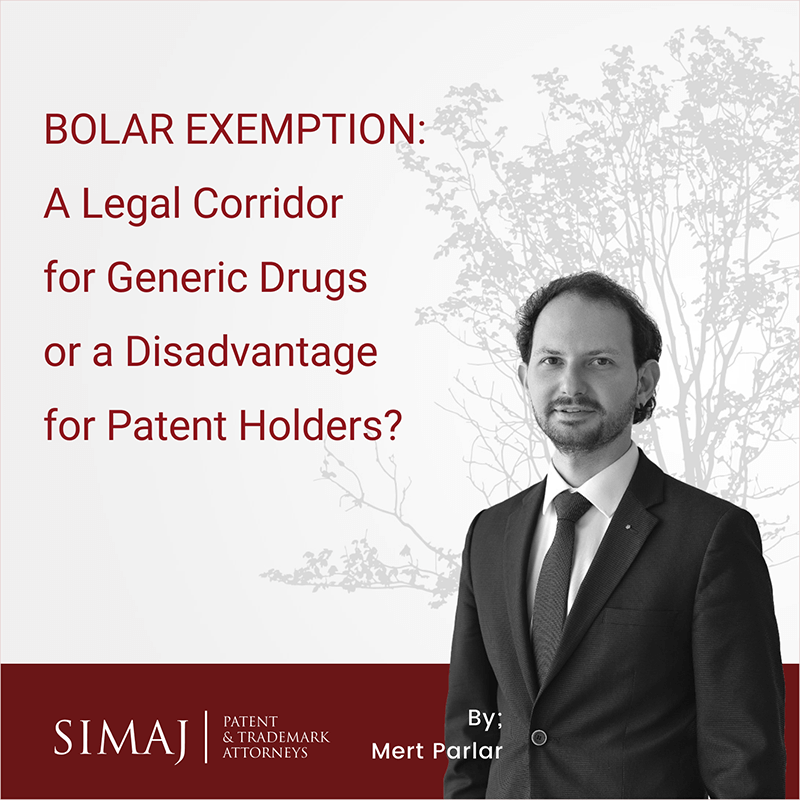Bolar Exemption: A Legal Corridor for Generic Drugs or a Disadvantage for Patent Holders?

What is the Bolar Exemption?
When a drug is discovered, the party that patents this discovery has the right to produce and sell this drug for 20 years. Once this period ends, the discovery becomes public, allowing third parties, i.e., the producers of the now generic drug, to produce the same drug, thereby accelerating access to the drug and reducing prices.
Although the generic drug producer does not need to spend time rediscovering the same drug, it can take months or even years to complete the necessary tests and experiments to get a license that complies with the relevant country’s legislation.
The exemption that allows completing this entire process while the patent protection period continues and enables the generic drug producer to enter the market without delay at the end of this period is introduced into legislation with the Bolar exemption, named after the case between Roche v. Bolar in the USA. This exemption foresees that if the generic producer’s purpose is only to prepare for the approval process and not to produce and sell the drug while the patent protection continues, it will not be considered a patent infringement.
This exemption, which is very important in terms of protecting public health and accelerating access to drugs, raises some questions in practice.
Legislation in Turkey
Article 85/3-(c) of the Intellectual Property Law No. 6769 states:
“Acts for experimental purposes involving the patented invention, including the licensing of drugs and the necessary tests and experiments for this, are outside the scope of the rights provided by the patent.”
The fundamental message from this statement is: Tests conducted for licensing purposes do not violate patent rights.
However, a seemingly clear provision leads to serious debates in practice. Because the question arises: “How broad can the scope of the licensing process be?”
Contradictions in Judicial Practice
The most debated issue in practice is where the boundaries of the Bolar Exemption begin and end. Some decisions only protect acts “conducted for licensing purposes,” while others broaden this interpretation framework. For example:
- – Rejection of requests regarding the recording of evidence: after licensing applications made by generic producers, the rejection of requests for recording any evidence by patent holders within the scope of the Bolar Exemption closes the only way for the patent holder to prove infringement.
- – SSI (Social Security Institution) reimbursement process and price approval: Some decisions evaluate steps such as including the drug in the SSI reimbursement list or obtaining price approval as part of the licensing process and accept that the exemption can be applied in these cases. This significantly reduces the price of the drug, and even if the innovator company wins the case, it cannot be recovered.
International Comparisons
The Bolar Exemption regulated by the European Union Directive 2004/27/EC only covers activities related to licensing applications, but since a unity in practice cannot be achieved, each member country can bring different interpretations according to its internal law.
In the United States, the scope of the Bolar Exemption is clarified by Federal Court decisions within the framework of the Hatch-Waxman Act, so “everything necessary to obtain a license” is accepted within the scope of the exemption.
Although Turkey has a legal framework parallel to the EU, it results in practices closer to the broad interpretation in the USA. However, recent court decisions accepting evidence recording requests and protecting the rights of patent holders show positive steps towards balancing the interests of the parties.
At this point, several common views emerge: legislation should be clear, unity should be achieved in judicial precedents, evidence determination and precautionary measures should remain open, and international practices should always be considered.
Conclusion: Which comes first, public health or patent rights?
The Bolar Exemption is actually a search for balance. While facilitating access to drugs, innovation should also be encouraged. Therefore, legal predictability should be an indispensable element for the Bolar Exemption, as in every matter.





